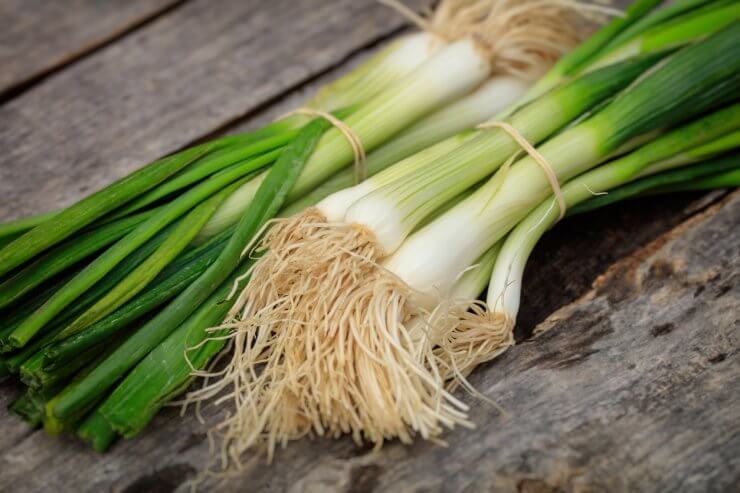
A bountiful bunch of scallions
Some scallions are perennials; others are biennials. No matter which type you choose, growing them will be pretty easy. It’s a matter of taste, and whether you live in a frost-free zone.
You can eat biennials the first year and—if you live in the right growing zone (based on the USDA Plant Hardiness Zone Map)—into the spring of the next year. In their second year, scallions set flowers at the head of each stalk. You don’t want to eat the scallions then—they’ve put all their energy into seed production, so their flavor will be less than ideal.
Once the seeds have matured, you can harvest them to start up a new crop of seedlings in starter pots. Or, if your garden soil warms up enough in the spring, you can sow the seeds directly.
If some people treat regular bulb onions as scallions, how can you tell the difference once you’re out in the garden? Check at the bottom of the plant’s leaves where they change from green to white. If the leaf cross-section is D-shaped or has a flat side, it’s Allium cepa. If the leaf cross-section is O-shaped or round, it’s Allium fistulosum.
Hybrid scallions are the result of cross-pollinating Allium cepa with Allium fistulosum. They’re difficult to produce, and most likely not worth a home gardener’s time. But if you’re really curious to see what happens when you cross a bulb onion with a green onion/scallion, look for Beltsville Bunching onions.
Do you grow scallions already? Do you grow perennials or biennials? Or have you tried growing hybrid scallions? Please share your scallion-growing experiences in the comment section below.


 Previous
Previous

